Last updated on
Discover the ideal gauge for your kitchen sink to ensure durability and functionality in this comprehensive guide.
When it comes to kitchen sinks, choosing the right gauge can make all the difference. But what exactly is a gauge? And how do you know which one to choose for your kitchen sink? Don’t worry, we’ve got you covered.
In this article, we’ll explain everything you need to know about gauges and help you determine which one is best for your needs. So whether you’re remodeling your kitchen or just looking to upgrade your sink, keep reading to learn more!
Key takeaways:
- Thicker gauges are more durable and dent-resistant.
- Thinner gauges are lighter and easier to install.
- 16-gauge sinks are thicker and more durable than 18-gauge sinks.
- Thicker gauges offer better sound insulation.
- Consider factors such as budget, usage frequency, and personal style when choosing a gauge.
What's Inside
Understanding Sink Gauges

Before we dive into the importance of sink gauges, let’s first define what a gauge is. In simple terms, a gauge refers to the thickness of the metal used in making your kitchen sink.
The lower the number, the thicker and more durable it is.
Most commonly used kitchen sinks are made from stainless steel material which comes in different gauges ranging from 16 to 22. However, other materials such as copper and cast iron also have their own unique gauge systems.
It’s important to note that while thinner gauges may be cheaper upfront, they tend to dent easily and require frequent replacement compared to thicker ones which are sturdier but come at a higher cost.
Importance of Kitchen Sink Gauge

The gauge refers to the thickness of the metal used in constructing the sink, and it can range from 16-gauge (thickest) to 22-gauge (thinnest). The lower the number, the thicker and more durable your sink will be.
Choosing a high-quality kitchen sink with an appropriate gauge ensures that you get maximum functionality out of it. A thicker gauge means better durability and resistance against dents or scratches caused by heavy pots or pans.
It also helps reduce noise levels during use as compared to thinner gauges.
On top of that, different materials have varying ideal gauges for optimal performance; therefore, understanding which material works best for you is crucial before making any purchase decisions.
Standard Sink Gauge Sizes
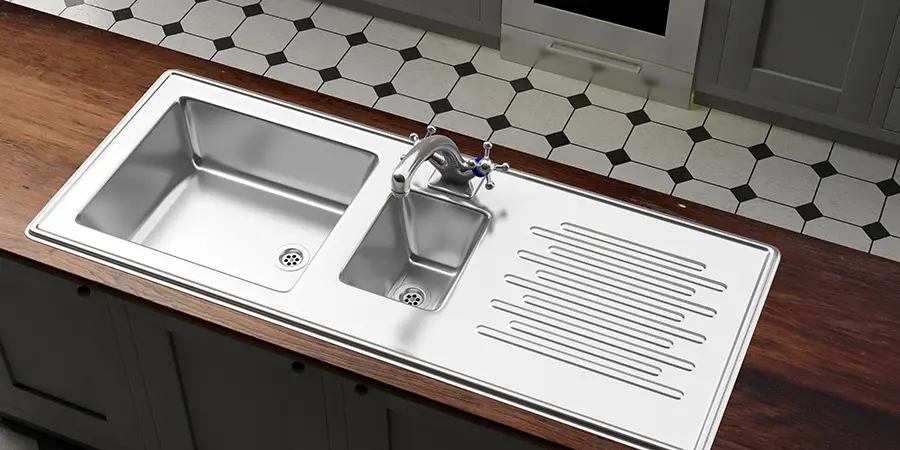
The most common gauge sizes range from 16 to 22, with the lower numbers indicating a thicker and more durable material. However, keep in mind that the thickness of your sink isn’t the only factor that determines its durability.
While a thicker gauge may seem like an obvious choice for those seeking durability and longevity in their kitchen sinks, it’s important to consider other factors such as material quality and construction methods. Thinner gauges can be just as durable if they’re made from high-quality materials or have been reinforced with sound-deadening coatings.
Ultimately, choosing the right gauge size for your needs will depend on various factors such as budget constraints and personal preferences. It’s always best to do some research beforehand so you can make an informed decision about which size is right for you.
In addition to standard sizes ranging from 16-22 gauges commonly found in residential kitchens; commercial-grade sinks often come in even lower-gauge options due to their heavy-duty usage requirements.
Comparing Kitchen Sink Materials
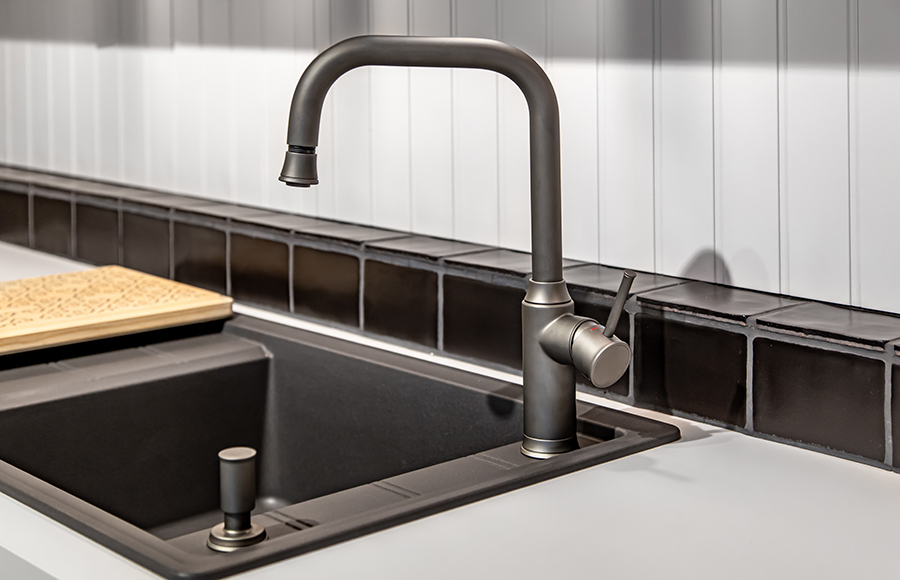
Each material has its own unique benefits and drawbacks, so it’s important to consider your needs before making a decision.
Stainless steel is the most popular choice for kitchen sinks due to its durability and affordability. It’s also easy to clean and matches well with modern appliances.
However, stainless steel can scratch easily and may show water spots if not dried properly.
Cast iron is another popular option that offers a classic look for traditional kitchens. It’s durable but heavy, which can make installation difficult.
Cast iron sinks require regular maintenance such as sealing or re-glazing over time.
Composite granite sinks offer a more natural look while still being durable enough for everyday use in the kitchen. They’re resistant against scratches, stains, heat damage but they tend towards higher prices compared with other materials.
Porcelain enamel on cast iron provides an elegant finish that complements vintage-style kitchens perfectly; however this type of sink requires careful handling since chipping or cracking could occur if something heavy falls into them.
Thicker Vs Thinner Sink Gauges

Generally speaking, thicker gauges are more durable and less prone to denting or damage from heavy use. However, they may also be heavier and more difficult to install.
On the other hand, thinner gauges are typically lighter in weight and easier to install but may not hold up as well over time. They’re also more susceptible to dents or scratches from everyday use.
So which gauge is right for you? It ultimately depends on your needs and preferences. If you’re looking for a sink that will last for years without showing signs of wear-and-tear, then a thicker gauge might be your best bet.
But if ease-of-installation is important or if you don’t plan on using your sink heavily every day (e.g., in a vacation home), then a thinner gauge could work just fine.
It’s worth noting that some manufacturers offer sinks with varying thicknesses throughout different parts of the basin – such as 16-gauge steel around the edges but 18-gauge steel in other areas – so it’s important to read product descriptions carefully before making any purchases.
Pros and Cons of Different Gauges
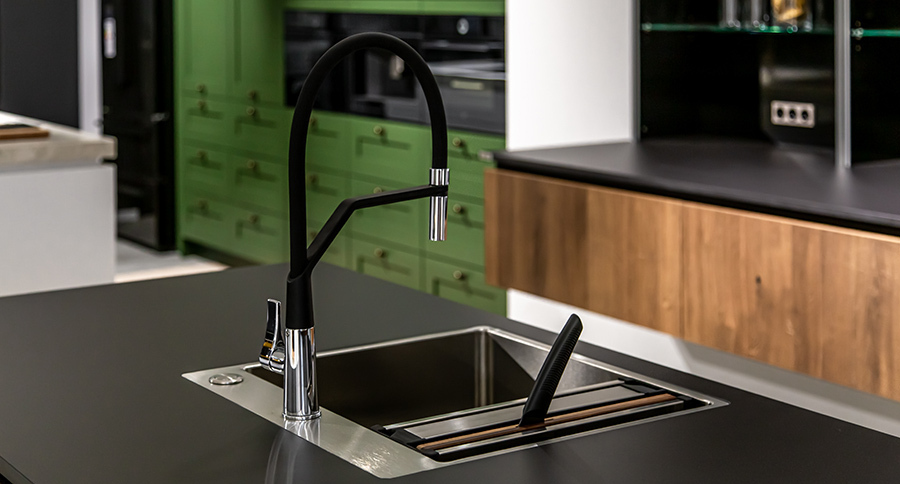
Each gauge has its own set of pros and cons that can impact your decision.
Thicker gauges, such as 16 or 18-gauge sinks, offer greater durability and resistance to dents or scratches. They also tend to be quieter due to their thicker construction which helps with sound insulation.
However, they may come at a higher price point than thinner gauges.
On the other hand, thinner gauges like 22 or 24-gauge sinks are more affordable but may not hold up as well over time compared with thicker options. They’re also more prone to denting from heavy use.
Gauge Impact On Sink Durability

Generally, the lower the gauge number, the thicker and more durable the sink will be. For example, a 16-gauge stainless steel sink is thicker and more durable than an 18-gauge one.
A higher gauge number means that your kitchen sink will be thinner and less sturdy. This makes it more prone to dents or damage from heavy pots or pans being dropped in it.
However, keep in mind that other factors such as material quality also play a role in determining how long-lasting your kitchen sink will be. So while choosing a lower gauge may increase durability to some extent, you should still consider other aspects like material quality when making your decision.
Sink Gauge and Sound Insulation

Thicker gauges tend to be quieter than thinner ones, as they absorb more noise from running water and clanging dishes. If you’re someone who values a quiet kitchen, it’s worth considering a thicker gauge sink.
However, keep in mind that other factors can also affect sound insulation, such as the type of material used for the sink or even how it’s installed. Some sinks come with additional padding or coatings to reduce noise levels further.
When shopping for a new kitchen sink, pay attention to its sound-deadening capabilities if this is an important factor for you. Look out for features like undercoating or rubber pads on the bottom of the basin which help dampen sounds when using your faucet or garbage disposal unit.
Installation and Gauge Considerations

Thicker gauges are generally more durable and less prone to denting or damage during installation. However, they can also be heavier and more difficult to work with.
If you’re planning on installing your own kitchen sink, it’s important to choose a gauge that you feel comfortable working with. Thinner gauges may be easier for DIYers since they are lighter and easier to maneuver into place.
Another factor to consider when choosing a gauge for your kitchen sink is the type of countertop material you have. Some materials like granite or quartz require additional support underneath the sink due to their weight.
In these cases, thicker gauges may be necessary in order for the countertop and sink combination not only look good but also function properly.
Choosing the Right Gauge for Your Needs
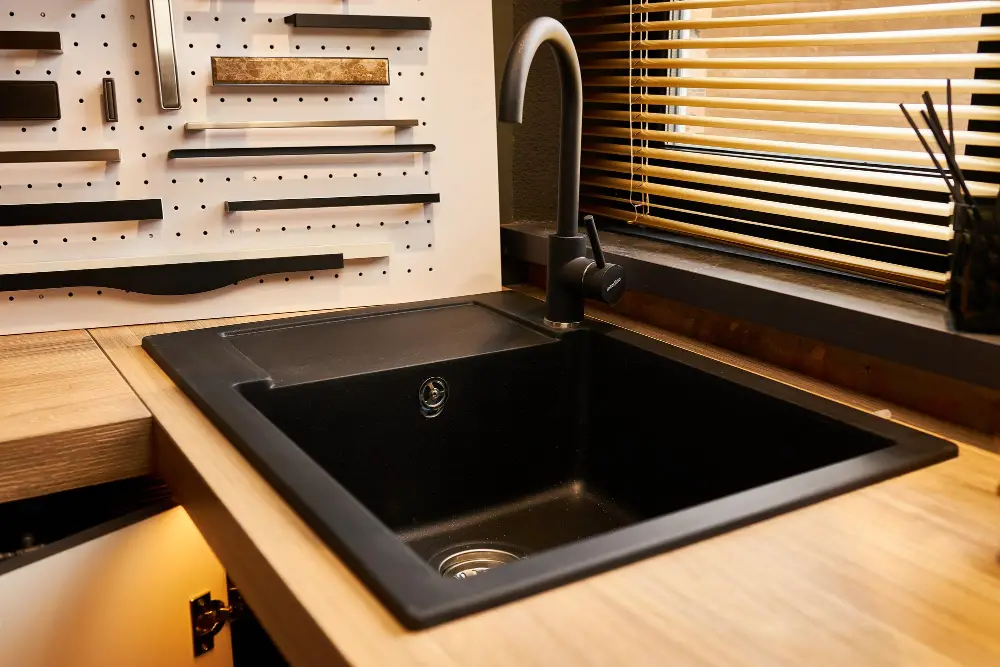
The first thing to consider is how much use your sink will get. If you have a busy household or do a lot of cooking, then you’ll want to opt for a thicker gauge sink as they are more durable and can withstand heavy use.
Another factor to consider is sound insulation. Thicker gauges tend to be quieter than thinner ones because they absorb more noise from running water and dishes clanging against them.
Your budget also plays an important role in choosing the right gauge. Thicker gauges tend to be more expensive than thinner ones, so if cost is an issue, then opting for an 18-gauge stainless steel sink may be best.
Lastly, think about aesthetics when selecting your kitchen sink’s gauge size. Some people prefer thicker sinks because they look sturdier while others like thin sinks due their sleek appearance.
Choosing the right gauge depends on several factors including usage frequency, sound insulation preferences,budget constraints,and personal style preference.
16 Gauge Vs 18 Gauge Kitchen Sinks
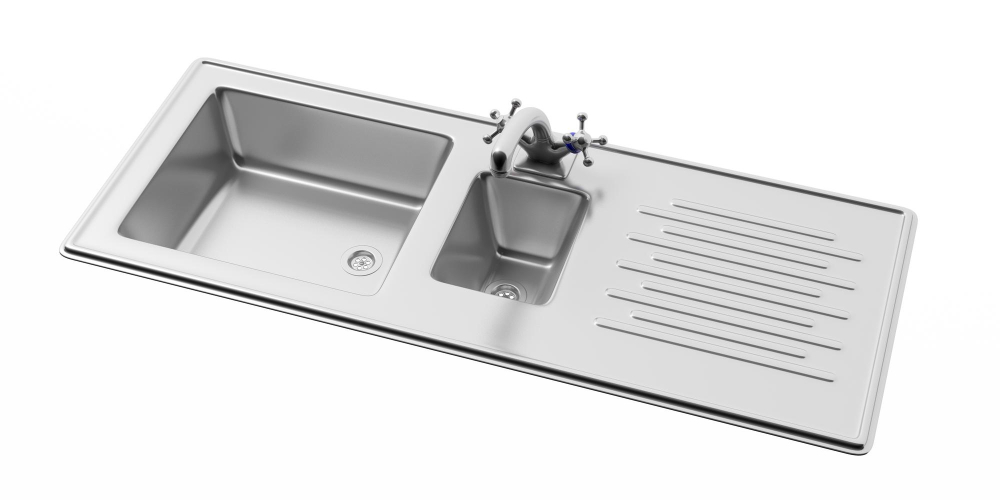
What’s the difference between them? In general, a lower gauge number means a thicker material. So, in this case, a 16-gauge sink is thicker than an 18-gauge one.
While both gauges can be durable and long-lasting if properly cared for, there are some differences to consider when choosing between them. A thicker gauge (like 16) may offer more durability and resistance to dents or damage from heavy use or impact.
However, it may also come with a higher price tag.
On the other hand, an 18-gauge sink can still be sturdy enough for everyday use while being more affordable than its counterpart. It’s important to note that not all materials will have both options available – some sinks only come in one specific gauge size.
Top 3 Differences Between 16-Gauge and 18-Gauge Stainless Steel Sinks
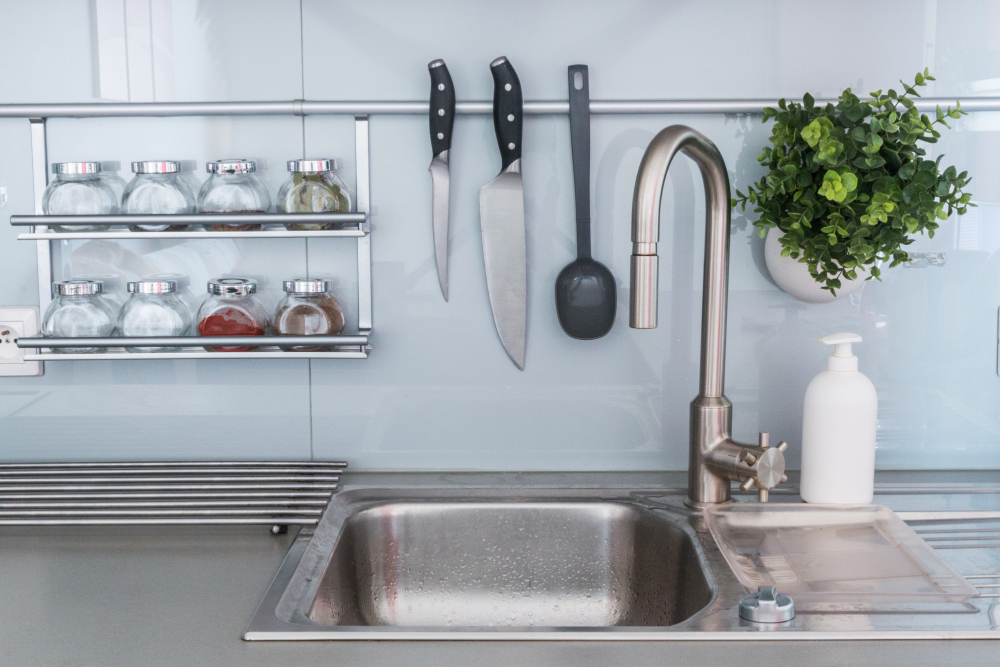
While they may seem similar at first glance, there are some key differences between them that can affect your sink’s durability and functionality.
1. Thickness: The main difference between these two gauges is their thickness.
A 16-gauge sink is thicker than an 18-gauge sink, which means it’s more durable and less likely to dent or scratch.
2. Price: Because a 16-gauge sink requires more material to make, it tends to be more expensive than an equivalent size in an 18 gauge option.
3. Noise Reduction: Another important factor when choosing a kitchen sink gauge is noise reduction during use – especially if you have a garbage disposal unit installed underneath the basin – as this will help reduce vibrations from running water or food waste being ground up inside the disposal unit itself.
In general terms thicker materials tend towards better sound insulation properties so for those looking for quieter kitchens then opting for a heavier gauge might be worth considering over cost savings associated with lighter weight options like those found in lower end models made from thinner metal sheets such as those used on many entry level sinks available today.
Benefits of 16 Gauge Stainless Steel Sinks
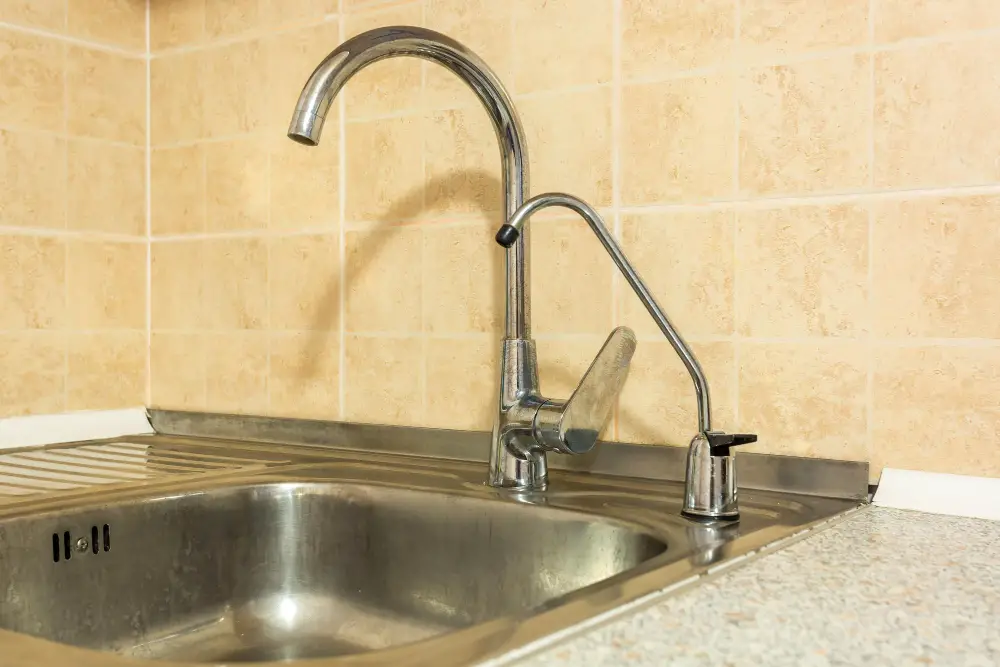
Here are some benefits of choosing this particular gauge:
1. Durability: A 16-gauge stainless steel sink is thicker than an 18-gauge one, which means it’s more resistant to dents and scratches.
2. Noise Reduction: The thickness of the metal also helps reduce noise from water flow or dishes clanging against the surface.
3. Easy Maintenance: Stainless steel sinks are easy to clean and maintain, making them ideal for busy kitchens.
4. Stylish Appearance: With its sleek finish and modern look, a stainless steel sink can add style to any kitchen decor.
5. Resistant to Corrosion: Stainless steel is highly resistant to corrosion caused by exposure to water or other liquids commonly found in kitchens.
Benefits of 18 Gauge Stainless Steel Sinks
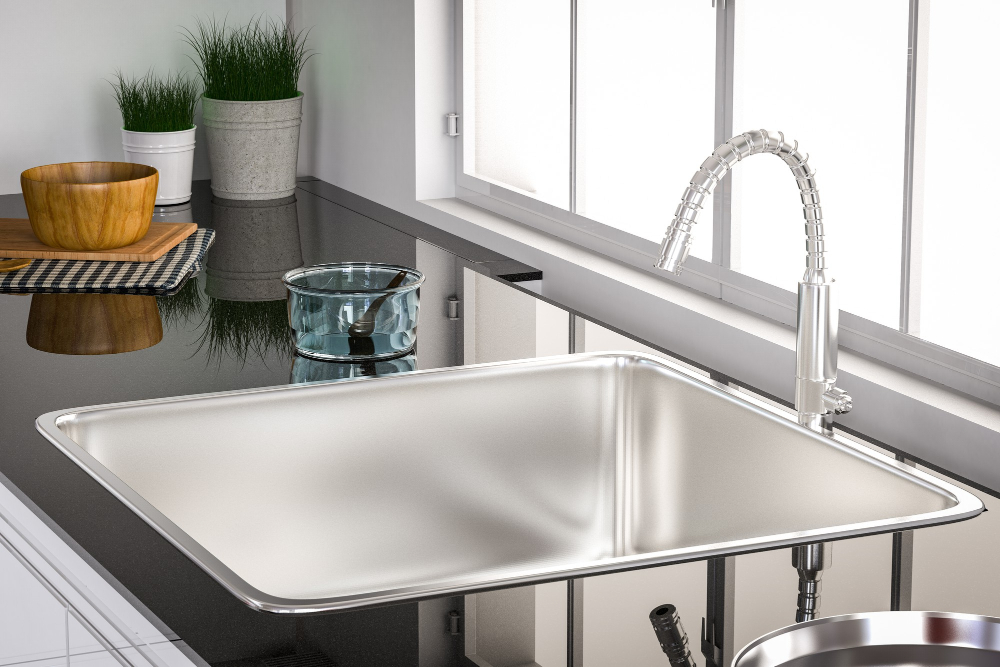
Here are some benefits of choosing this type of sink:
1. Cost-effective: Compared to thicker gauges, an 18 gauge stainless steel sink is more budget-friendly while still providing excellent quality.
2. Easy to clean: Stainless steel sinks are known for their easy-to-clean surface, and the same goes for those made with an 18-gauge material.
3. Resistant to corrosion: The chromium content in stainless steel makes it resistant to rust and corrosion over time.
4. Lightweight yet sturdy: An 18-gauge thickness provides enough strength without adding too much weight or bulkiness during installation.
5. Versatile design options: With its sleek appearance and modern look, a stainless-steel kitchen sink can complement any style or decor in your home’s kitchen area.
About Commercial Gauges

That’s where commercial sink gauges come in. These gauges are designed to be thicker and more durable than standard residential ones, making them ideal for high-traffic areas like restaurants, hotels, and hospitals.
Commercial sink gauges typically range from 14 to 18 gauge, with the lower numbers indicating a thicker material. While these sinks may cost more upfront than their residential counterparts, they offer superior durability and longevity that make them worth the investment.
When choosing a commercial sink gauge for your kitchen or business needs, it’s important to consider factors such as size requirements, usage frequency (i.e., how often will it be used), budget constraints (including installation costs), maintenance needs (such as cleaning products required) among others.
5 Factors to Consider Before Buying a Stainless Steel Kitchen Sink
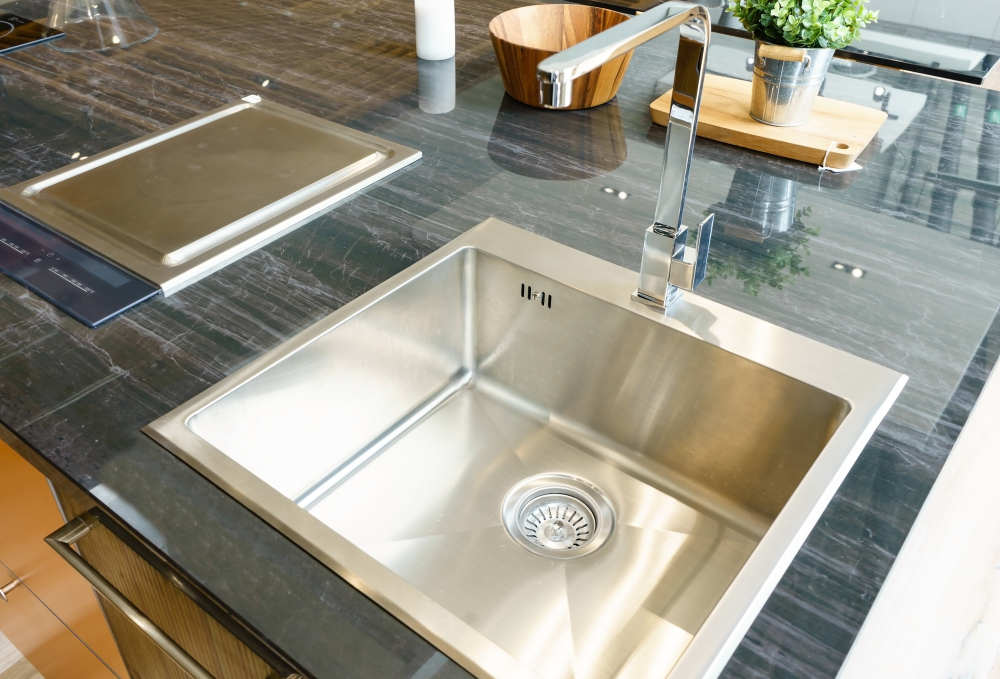
Here are five key things to keep in mind:
1. Size and Configuration: Consider the size of your kitchen and the space available for your sink.
Think about how many bowls or basins you need, as well as any additional features like built-in drainboards or cutting boards.
2. Gauge: As we’ve discussed earlier in this article, gauge is an important factor when it comes to choosing a stainless steel sink that will last for years without showing signs of wear and tear.
3. Material Quality: Not all stainless steel sinks are created equal – some may be made with lower-quality materials that can rust or corrode over time if not properly cared for.
4. Noise Reduction Features: Stainless steel sinks can be noisy when water hits them due to their metal construction; however, some models come with sound-deadening pads or coatings that help reduce noise levels during use.
5. Budget Constraints: it’s important to consider your budget before making a purchase decision on any home improvement item including kitchen sinks.
Maintenance Tips for Various Gauges

Here are some maintenance tips based on different gauges:
For 16-gauge sinks: These thicker sinks are more durable and resistant to dents and scratches. However, they still require regular cleaning with a non-abrasive cleaner and soft cloth or sponge.
For 18-gauge sinks: While these thinner sinks may be more affordable, they can be prone to denting if not handled carefully. To prevent damage, avoid placing heavy objects in the sink or dropping sharp utensils on its surface.
For commercial-grade gauges: If you have a commercial-grade kitchen sink with an even lower gauge (14-12), it’s essential that you clean it regularly using only mild soap and water as harsh chemicals can cause discoloration over time.
Regardless of which gauge your kitchen sink is made from, always remember never use abrasive cleaners such as steel wool pads or bleach-based products when cleaning them as this could scratch their surfaces permanently.
Costs and Budgeting for Sink Gauges

Generally speaking, the thicker the gauge of a sink, the more expensive it will be. However, this doesn’t necessarily mean that you should always opt for a thinner gauge just because it’s cheaper.
While 18-gauge sinks are typically less expensive than their 16-gauge counterparts, they may not be as durable or long-lasting. This means that you could end up spending more money in repairs or replacements down the line if you choose a lower quality sink.
On average, expect to pay anywhere from $200-$500 for an entry-level stainless steel kitchen sink with an 18-20 gauge rating. For higher-end options made with thicker gauges (14-16), prices can range from $400-$1k+.
Of course other factors like brand name and features such as sound insulation can also affect pricing.
Best Gauge for Kitchen Sink
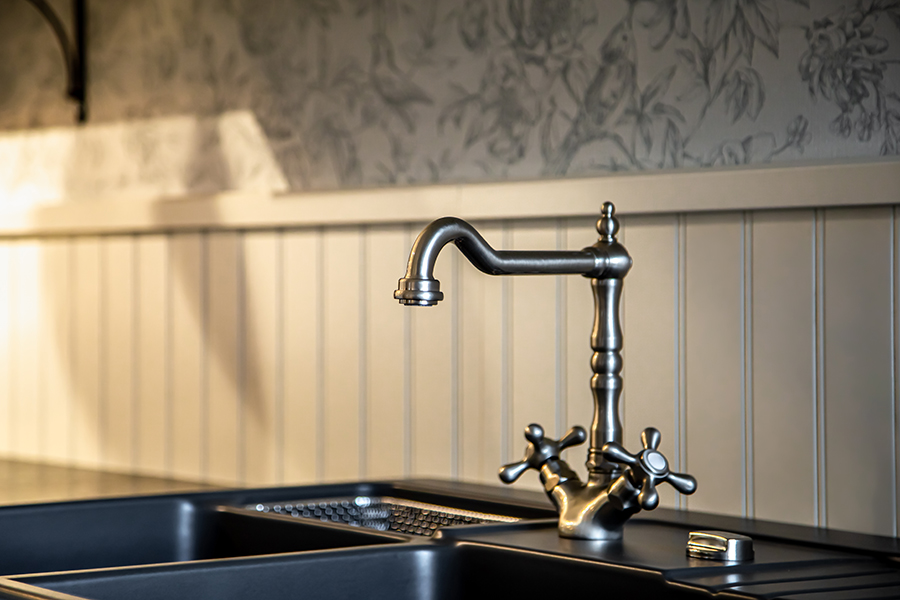
So which gauge is right for you? The answer depends on several factors, including your budget, style preferences, and how much wear and tear you expect your sink to endure.
Generally speaking, lower gauges (thicker sinks) are more durable than higher gauges (thinner sinks). However, thicker sinks also tend to be more expensive.
For most homeowners looking for a balance between cost-effectiveness and durability in their kitchen sink purchase 18-gauge stainless steel is often considered as the best option.
However if money isn’t an issue or if you’re looking specifically at commercial-grade options then 16-gauge stainless steel may be worth considering as it offers superior strength compared to its thinner counterparts.
Ultimately though when choosing a gauge size there are no hard-and-fast rules – what works well in one home might not work so well in another.
FAQ
What is better an 18 gauge or 20 gauge sink?
An 18-gauge sink is better than a 20-gauge sink, as it provides better cost, performance, and overall satisfaction.
Is 14 gauge sink better than 16 gauge?
Yes, a 14 gauge sink is generally better than a 16 gauge sink due to its stronger and more durable material.
What is stronger 16 gauge or 18 gauge sink?
A 16-gauge sink is stronger and more durable than an 18-gauge sink due to its thicker steel.
Is 20 gauge good for a kitchen sink?
A 20 gauge is not ideal for a kitchen sink, as most household kitchens typically use 18 or 16 gauge for optimal size and durability.
What factors should be considered when choosing the gauge for a kitchen sink?
When choosing the gauge for a kitchen sink, consider factors such as durability, noise, and price.
How does the sink material affect the importance of sink gauge?
The sink material affects the importance of the sink gauge as it determines the durability, strength, and noise reduction capabilities of the sink, with thicker gauges being more desirable for long-lasting and quieter functionality.
Are there specific uses or scenarios when a lower or higher gauge sink is more suitable?
Lower gauge sinks are more suitable for heavy-duty usage, while higher gauge sinks are ideal for light-duty applications.




